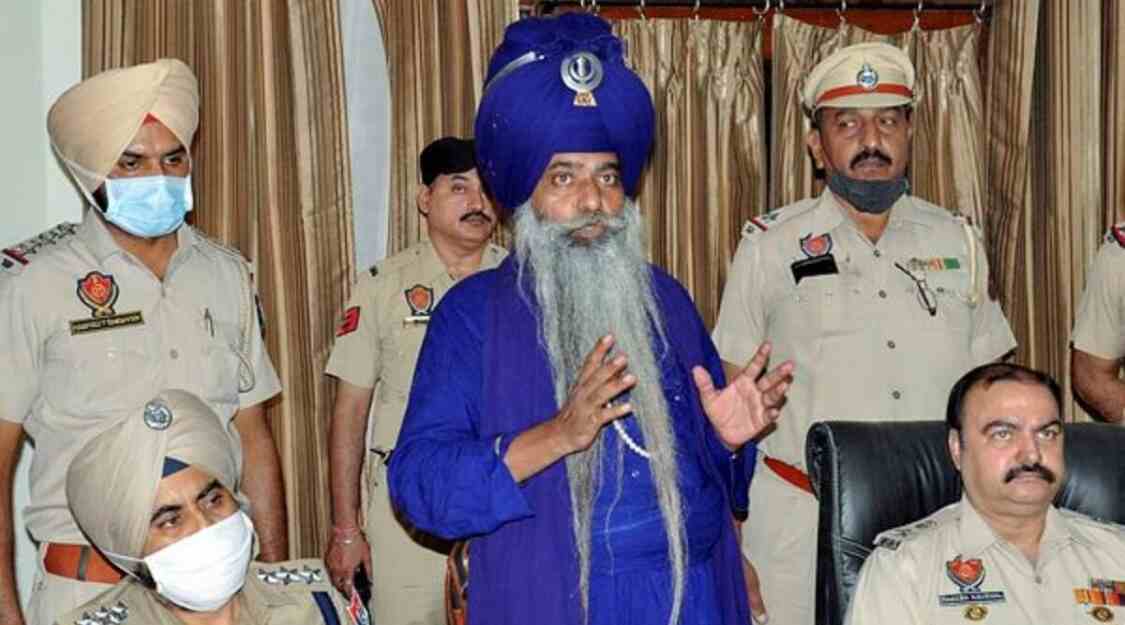Condemnable crime

The brutal lynching of a person on religious grounds at the Singhu border was no doubt a shameful criminal act. The self-proclaimed caretakers of religion have time and again inflicted deepest wounds to the values of religion itself — irrespective of the faith they represent. In India, religion has always been a governing force — parallel to law — but more loosely defined, leaving a grey area for manipulative interpretation and action. The combination of religion and violence is highly paradoxical and unjustifiable. While religion and crime have taken a disheartening course in the recent lynching case, the state — as the guarantor of law — is expected to play its part positively for justice to be delivered timely. Unfortunately, the state governments of Punjab and Haryana have spoken very little over the issue. It is pertinent here to understand that the issue is politically sensitive, particularly in Punjab. The sacrilege issue is considered as one of the major determinants that led to the fall of the SAD-BJP government in Punjab in the 2017 assembly elections. This time around, the sword hangs over the head of Congress, with assembly elections slated to be held next year. The sacrilege issue is also one of the reasons that led to the current change of Congress leadership in the state. The holiest scripture of Sikhs — Guru Granth Sahib — is considered a live god in their religious beliefs. When on June 1, 2015, the scripture was stolen from Burj Jawahar Singh Wala village in Faridkot district, and later torn and scattered on the streets, the incident took a political turn contributing to the defeat of NDA. The issue was further compounded by police firing in Kotkapura and Behbal Kalan to disperse the protesting Sikhs. The Congress which took up the issue vigorously ahead of 2017 polls, constituted SITs to probe into related matters after coming to power but no conclusion has been reached to date. The headway made by the state was undone this year itself when Punjab High Court quashed the SIT probe into the firing case and the state government had to start everything from scratch. The series of events without any meaningful conclusion has led to the build-up of anger and discontent among factions of the Sikh community. This is not to justify or project reasons for the recent lynching, but to highlight the administrative failure in resolving the sacrilege issue and rather giving it a political colour. The Nihang are considered 'warrior groups' who always carry a weapon, and have self-entrusted themselves with the task of 'protecting religion'. But in doing so, they can never be allowed to trespass the territory of law that governs the life and conduct of people beyond the boundaries of religion. It is now up to the state to take strict action against the culprits. Law should show no mercy to those who breach it, on whatever grounds. The terrifying brutality of the lynching, apart from throwing law into shambles, is also a gross underestimation of an individual's right to life. Does religion allow any entity to terminate the Almighty's creation? Certainly not. It is very important to dissociate the assumed sense of pride from such heinous acts, in the garb of safeguarding religion, perpetrated by notorious elements of any sect and faith. The incident also has likely fallout for the farmers' protest. The SKM has taken a rather bold move to distance itself from the Nihang groups, terming it as a religious issue unrelated to the farmers' protest. But it still cannot be denied that Nihang have been a part of the protest. This, however, cannot be taken as an excuse to discredit the legitimacy of the broader cause the farmers are fighting for. It is the shared responsibility of the government and the protesting farmers to ensure that protest and maintenance of law and order go hand in hand. The fact that this is not the first time that the protest has come under controversy, calls for a stronger internal vigil by the protesting farmers to maintain the sanctity and essence of their protest. Also, the fact that lynching took place at the site of farmers' protest, doesn't allow the state to escape from its responsibility of ensuring law and order. It still remains the state's responsibility. As far as the investigations are concerned, there are two aspects. First, the probe around whether the murdered person was involved in the conspiracy of sacrilege or not can be conjoined with the larger sacrilege case continuing since 2015. Second, the lynching should be seen as independent of the sacrilege case. Protection and promotion of religion will have to be done under the ambit of law. The Singhu lynching merits to be strongly condemned by all sections of society and polity. The governments should break their silence, to remain relevant. Let religion and state flourish together abreast of each other.



